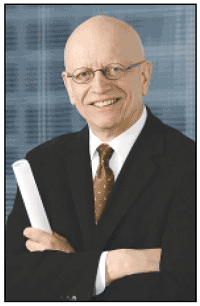Electoral Insight - Election Legislation Enforcement
Electoral Insight – March 2003
Chief Electoral Officer's Message
Election Legislation Enforcement

Jean-Pierre Kingsley
Chief Electoral Officer, Elections Canada
The method of enforcing election legislation is one of many elements that serve to strengthen democratic processes. Different systems have been developed based on particular values and cultures, and the circumstances existing at the time of their adoption. Their common and essential goal is to maintain public trust in the integrity of the process.
In Canada, while I am responsible for the administration of federal elections, the Commissioner of Canada Elections is responsible for the enforcement and prosecution of all offences under the Canada Elections Act. The Commissioner is selected and appointed by the Chief Electoral Officer under section 509 of the Act. More information about his role and the multi-faceted approach used to ensure enforcement of the Act is contained in Raymond Landry's article in this issue.
The new Canada Elections Act adopted in 2000 contained some changes that reflected the views of many, including myself, who had recommended decriminalizing certain offences under the Canada Elections Act. Nevertheless, it is important to ensure that the consequences for non-conformity remain relevant to ensure deterrence and serve to educate the public, and that the processes of enforcement remain shielded from political manipulation.
This issue of Electoral Insight surveys enforcement schemes adopted to effect compliance with electoral law in various jurisdictions. Criminal prosecution of offenders, imposition of civil fines and less stringent measures such as the conclusion of compliance agreements are among the provisions used. As will be seen from the various articles in this issue, a range of administrative and judicial bodies are responsible for applying these rules.
Every democracy is a social laboratory where processes are tested in real-life situations, and every nation must continue to strive to determine what works best to ensure the effective enforcement of its election law. In so doing, the experience of others can be instructive and contribute to the process of adaptation to changing circumstances.
As always, comments about this issue are welcome, along with suggestions for future articles.
Jean-Pierre Kingsley
Note:
The opinions expressed are those of the authors; they do not necessarily reflect those of the Chief Electoral Officer of Canada.
